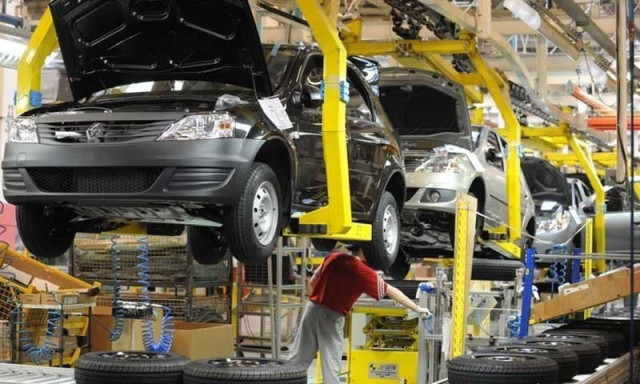Auto part makers seek removal of regulatory duty
Claim many industrial units are going towards closure

PHOTO: AFP
Auto industry seeks tax relief at retail stage
He called as unjustified the 30% regulatory duty on products that were not being produced in the country. Some of them that were being manufactured in the country were not of good quality that the auto industry needed.
“The auto parts’ making industry is on the verge of collapse due to the regulatory duty imposed for three fiscal years,” said Khan.
The duty was slapped at a time when the government believed that international steel prices would continue to remain low. But now, he said, international prices had been on a constant rise, making it even more difficult to bear the burden of regulatory duty.

“Many industrial units are nearing closure and up to 200,000 employees are on the verge of losing their jobs. Pakistan’s exports have dropped only because we have become 30% more expensive than our competitors due to this duty,” he added.
As per the new five-year auto policy, which was announced on March 21, 2016 with a comprehensive tariff structure, he said, it was unjustified to modify its approved tariff structure through the levy of regulatory duty and additional customs duty on raw materials that were not manufactured locally.
China to build automobile city in Gwadar
The auto parts’ manufacturers requested the government that imports of raw materials should be exempted from the regulatory duty as similar exemptions had also been granted to other sectors.
Published in The Express Tribune, June 9th, 2017.
Like Business on Facebook, follow @TribuneBiz on Twitter to stay informed and join in the conversation.



















COMMENTS
Comments are moderated and generally will be posted if they are on-topic and not abusive.
For more information, please see our Comments FAQ